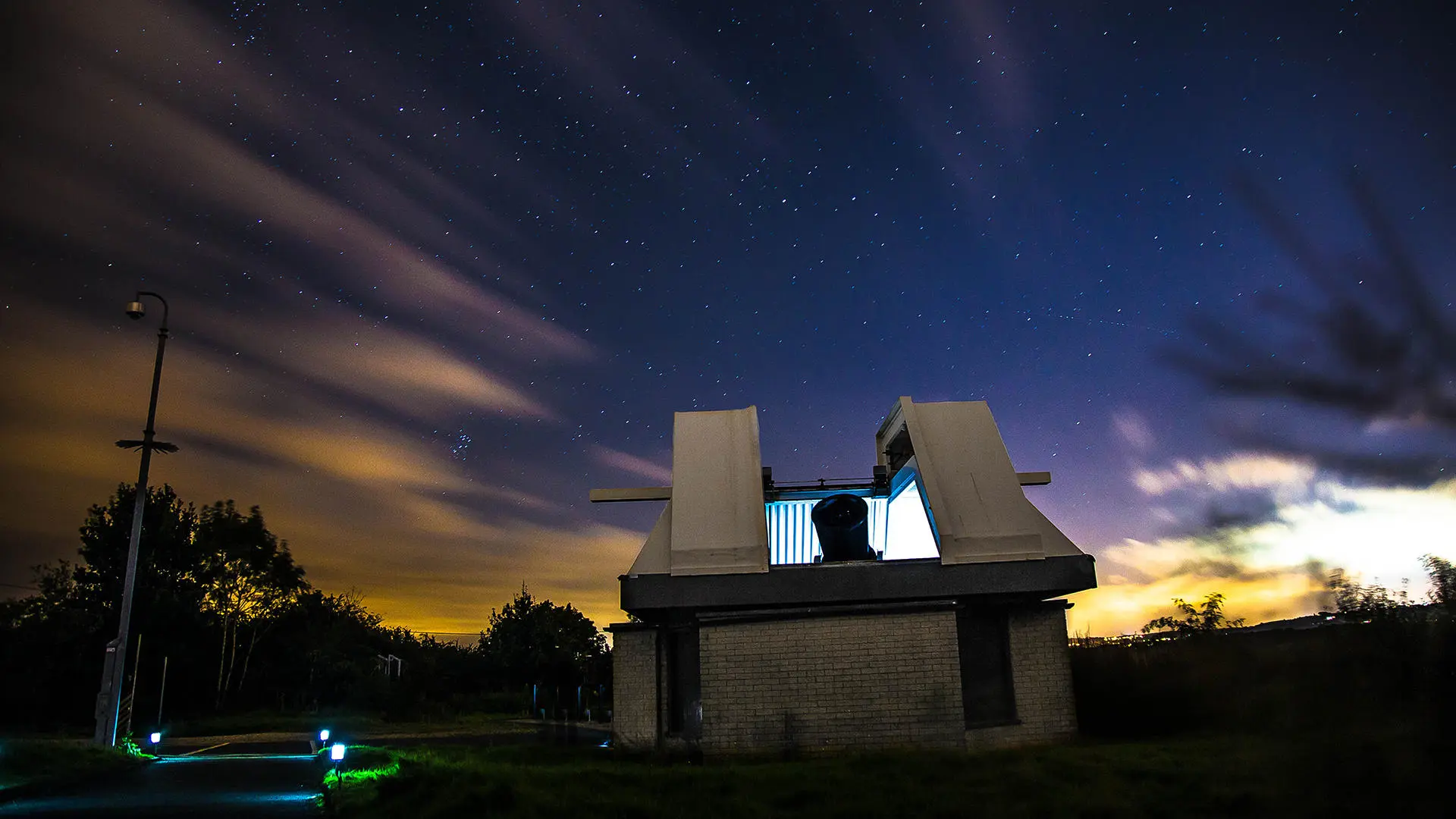Our Physics with Astrophysics with Foundation Year will help you gain skills that are invaluable for many careers. You’ll cover everything from quantum physics to the formation of the universe.
Why study with us
- 1stin the UK for academic supportNational Student Survey (Physics and Astronomy) (compared with unis in the Guardian University Guide)
2023 - 6thin the UK for overall positivityNational Student Survey (Physics and Astronomy) (compared with unis in the Guardian University Guide)
2023 - 2ndin the North West for student satisfactionComplete University Guide (Physics and Astronomy)
2024 - 5thin the UK for teaching qualityTimes Good University Guide (Physics and astronomy)
2024
- You’ll gain in-depth knowledge of the laws of physics, and the stars and galaxies that make up the universe.
- In addition, you’ll become highly proficient at problem-solving and solving challenges through creative thinking.
- You’ll improve your mathematical skills, backed up by practical laboratory experience.
What you’ll do
- During your BSc (Hons) Physics with Astrophysics course, you’ll make real astronomical observations using our Alston Observatory, one of the largest teaching observatories in the UK.
- Course staff are members of the School’s Jeremiah Horrocks Institute. Many hold PhDs and are renowned active researchers.
- During your course you’ll learn through lectures, tutorials, seminars, problem classes, laboratory work, observatory experiments, individual project work and group work.
Modules
In Year 3 you will study either Physics/Astronomy Project or UAS Teaching Placement. You will also study either Formation, Structure and Evolution of Stars or Cosmology and Galaxies.
Every effort has been made to ensure the accuracy of our published course information. However, our programmes are subject to ongoing review and development. Changing circumstances may cause alteration to, or the cancellation of, courses. Changes may be necessary to comply with the requirements of accrediting bodies or revisions to subject benchmarks statements. We may also make changes to keep courses updated and contemporary, or as a result of student feedback. We reserve the right to make variations if we consider such action to be necessary or in the best interests of students.
View the course facilities
Accreditations
Future careers
Physics, astronomy, and astrophysics graduates are amongst the most employable in the world. This is particularly in technical and business sectors, where analytical and mathematical skills are at a premium.
Entry requirements
We will consider your educational achievements, predicted grades, work experience and personal statement. If you don't meet the grades for your chosen course, we will consider you for other programmes.
We know that many factors can influence the grades you achieve in school or college. If your life experience has affected your academic studies, we can take this into account. Use the UCAS Points Calculator below to check whether you are eligible.
Unsure if you meet our entry requirements? Contact our friendly Course Enquiries team to talk through your options.
- UCAS: 64 points including 32 from A Level or AS Level Maths and/or Physics
- BTEC Extended Diploma in Applied Science or Engineering MPP is accepted alongside GCSE Maths at grade A/7, AS Maths or alternative proof of mathematical ability on a case-by-case basis. 64 UCAS points including BTEC is accepted alongside 32 UCAS points from A-level or AS level Maths and/or Physics.
- Pass Access Course: 64 points including 15 credits at level 3 in each of Maths and Physics
- International Baccalaureate Diploma: Pass including 64 points from Higher Level subjects and Higher Level Maths and Physics
- T Level: P (D or E) in Science or Engineering is accepted alongside GCSE Maths at grade A/7, AS Maths or alternative proof of Mathematical ability on a case-by-case basis, or T Level: P (D or E) in any subject is accepted alongside 32 UCAS points from A Level or AS Level Maths and/or Physics
- IELTS: grade 6.0 with no component lower than 5.5
- GCSEs: 5 at Grade C/4
Use our UCAS points calculator
Fees and funding
Scholarships and bursaries
We have a wide range of bursaries, scholarships and funds available to help support you whilst studying with us.
Select your country to see eligibility information and how to apply by selecting more info on the cards below.
Care Leaver Bursary
Our Care Leaver Bursary is for students who need extra support because they have been in care or are estranged from their parents.
Find out more about Care Leaver BursaryEstranged student support
Estranged Student Support Bursary is for students who need extra support because they are estranged from their parents.
Find out more about Estranged student supportDependants Bursary
Students with financially dependent children may be eligible for our Dependants Bursary as part of our financial support package.
Find out more about Dependants BursaryFoundation Year Bursary
Our Foundation Year Bursary scheme is for students starting a four or five year undergraduate degree programme.
Find out more about Foundation Year Bursary
This course is delivered by the School of Engineering and Computing
For information on possible changes to course information, see our essential and important course information
You can find regulations and policies relating to student life at the University of Central Lancashire on our student contract page

